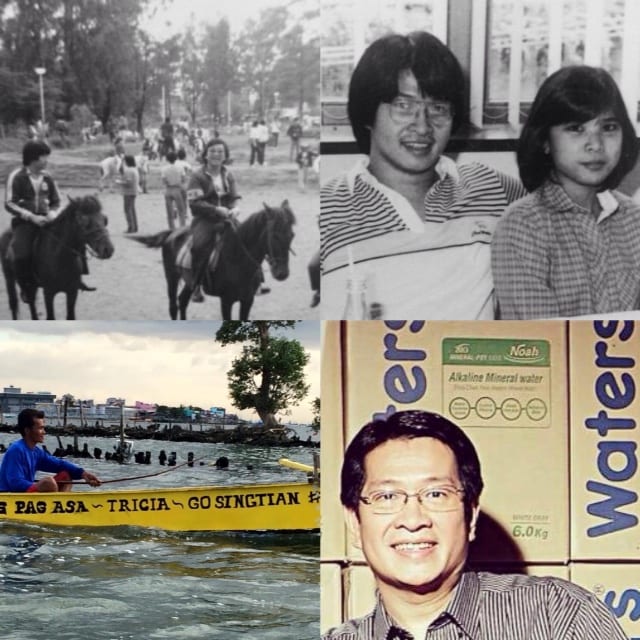
It is always good to be mindful of mass-based consumers and the poor and marginalized. It’s even better to stay with them to watch what they do and why.
A. Family heritage
Dad became a market vendor / kargador at age 11. He had to support a family struggling to make ends meet. I have always embraced this fact and have always had a soft spot for market vendors.
My elder brother and I were required to work part-time to earn our allowance starting age 15. We both worked in a small machine shop, which was really more like a sweat shop in Kalookan city where we grew up. This was until the shop transferred to a new location.
College came and I passed the entrance tests of both a mass based school and De La Salle. On the last minute, dad convinced me to enroll at La Salle, assuring me that he had the capacity to pay for a higher tuition fee.
B. Public Transportation
I took the jeep and the bus for two years to and from De La Salle University and Project 8, where we used to live. From Taft, I had to change stations in Quiapo and then a last one in Munoz Market nearer my residence. One time it was raining hard and I was reviewing while commuting. I forgot to close my attache case and when I alighted from the vehicle, the contents of my attache case went straight to the flood water. My heart dropped and I have become more alert since then.
When I reached my 3rd year in college, my father lent me a second hand car, a Toyota Macho, but with holes in the muffler. My excuse then was that it sounded like a ‘racing car,’ but never mind, I was too thrilled to start driving like my classmates in school. My closest orgmate from Englicom disagreed and decided to give me a new muffler as a birthday gift because he and my other friends were so irritated with the noise, that it was always either a conversation piece or part of a joke.
Like me, my twin boys Chase and Juju were required to take the public transport in college. I wanted them to be exposed to commuting and being simple. It only ended when a bomb exploded in the MRT and my wife and I started to worry for their safety.
C. Working from the ground up
After graduation, I started as a rank and file employee in 1982 and had to fall in line to get my salary. Good thing RFM promoted me after only 9 months to be associate manager in the brand marketing division.
There, I was first assigned to launch various new products under the RICA brand, targeting the middle class before being transferred to Swifts. This was the time RFM was still market leader in processed meats but they eventually lost to Purefoods by default due to a 6-month strike by militant factory workers. When the workers returned, we got some complaints from housewives showing us broken glasses inside canned corned beef and production had to slow down for greater quality inspection.
While at RFM, I remember going out on field work every week with different salesmen and eating inside different wet markets or nearby eateries. I had to accelerate my weekly field work in different channels, after realizing the salesforce were paid a straight salary plus commission with no product quota breakdown – a disastrous consequence for a brandman launching new products badly needing placement. My close relationship with the salesforce paid off as they eagerly supported me on a personal level.
I also remember feeling excited when I was flown inside the RFM Cabuyao factory in Laguna via helicopter to help in the production of ham and stayed inside the factory for over a week as part of my training. This was at the height of the labor strike. We were warned not to go near the gate as some of the strikers may throw stones at the workers inside.
When Senator Benigno Aquino Jr. was assassinated in 1983, the peso shot up from P26 to over P40 in no time. Industries had a hard time and in addition to brand work, I accepted an additional role every afternoon to sell to hotels, restaurants, and institutional accounts to help build up volume and save jobs in the factory. I welcomed the challenge and the trust given to me, even if I had to do the job of three people. RFM’s Tony Ding offered me to be marketing manager in 1985 but I was already committed to my start-up with the owner of Abenson.
Because of my own experience as an employee, I readily allowed my then 20-year old youngest son Calel to work in the restaurant of Four Seasons Hotel in Wyoming, USA for a year. It was hard work in snow land but I am glad he learned the value of earning his keep, away from his family and returning home with substantial savings as part of his capital for his future start-up.
I also remember Tricia participating in a street sweeping program of Ateneo but many men started to approach her in disbelief as she did not look like the other sweepers. Today, Tricia is partial to the poor, the marginalized, and the start-up entrepreneurs. At a young age of 26, she has donated substantial amounts to over a dozen charities.
D. Baguio Honeymoon
Chiqui and I had our honeymoon in Baguio and we only took the bus. We almost got left behind on our return trip but that’s another story altogether.
It was what we could afford then so there were no complaints. We simply reminisced about the time we became a couple while attending a planning session of the Council of Student Organizations of La Salle.
While at Wright Park, Chiqui fell off the horse as the strap of the saddle wasn’t locked. It was too late to catch her so following the practice of my late grandmother, I took a coin and pressed it against her ‘bukol.’ She was shocked but I was convinced then that it was the right thing to do. I decided to take care of her for the rest of the conference. To this day, I don’t know if she may have intentionally jumped off of the horse as there were other women wanting my attention as well, but she always stood out to me 🙂
E. Masa Housewives
Working with distributors of Waters Philippines, I gained insight as to their typical day – waking up at 5am and then sleeping just before midnight. I was blessed as they shared their aspirations and fears with me. Their lives revolved around their school-aged children. They usually left the house after the kids went to school and returned home in time to join the kids for dinner. Sometimes they missed dinner because of a customer’s appointment.
I also discovered two insights why they work, beyond helping their husbands. First, the women like working because they like to buy clothes without asking their husbands’ permission. Second, many of them like to help their siblings or give something to the parents without being chastised by their husbands.
(Thanks to Businessworld for publishing a shortened version of this.)


